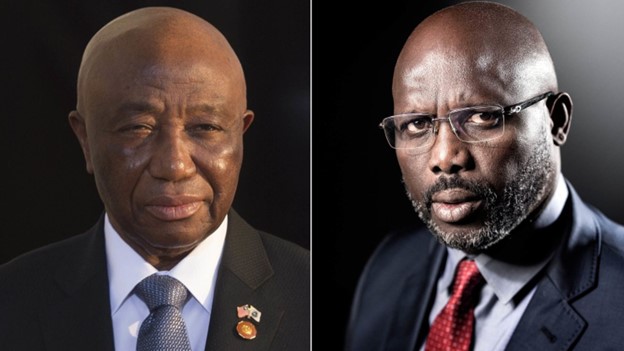By Sidiki Fofana | Truth in Ink
If President Boakai’s treatment has been the gasoline, then the question that lingers is what is the spark that is really lighting George Weah’s path toward a comeback? Is it merely the bitter taste of disrespect, or something deeper, perhaps a new vision born from reflection?
Liberians have not forgotten the challenges of the Weah years. From economic missteps to accusations of corruption and missed opportunities, many recall a presidency that promised hope but left anger and disappointment. To seek power again, Weah must do more than just capitalize on Boakai’s stumbles; he must present himself as a changed man, one driven by redemption rather than vengeance.
In private whispers and public hints, Weah’s allies now frame his return as an opportunity to “correct the wrongs.” They insist the former president has learned from his first term; that he has seen what went wrong, felt the sting of rejection, and now wants to build the Liberia people hoped for when they swept him into office in 2017.
“Da Weah I know loves the people. If he really comes back and change his style, fix the economy, and keep the rogues far from him, then maybe he can redeem himself,” said a petty trader in Duala market.
But skepticism runs deep. A university student, shaking his head, said it angrily:
“Weah had six years to prove himself and he wasted it. Now he says he’s coming to correct wrongs. What stopped him before?”
Even within his own CDC, doubts remain. When Weah announced a party reconstruction committee, many partisans were stunned by the familiar names attached to it. These were men and women long accused of being part of his downfall. One CDCian whispered in frustration:
“So, assuming we had won, Weah was again going to bring back these same guys? While we want Weah back, we don’t want him keep recycling the same people. Are there no other CDCians?”
How he balances this tension, between leaning on the same cycle or opening up to new faces, will be critical in how both his supporters and his critics trust his claim to be a ” new Weah” indicative of a “new vision” and solution-oriented approach.
Political commentators are cautious. A Monrovia-based analyst observed:
“The challenge for Weah is to convince Liberians that he is not just coming back for revenge against Boakai. If it looks like vengeance, it will die quickly. If it looks like redemption, it may catch fire.”
The stakes are not personal; they are national. Liberia is once again in the grip of economic hardship, disunity, and leadership fatigue. The people are desperate not for recycled power struggles, but for vision, competence, and delivery. If Weah cannot show that his return is about more than bruised pride, then his ambition is nothing but a revenge attempt.
But if he can persuade Liberians that he comes not as the old Weah, but as a humbled leader who has tasted defeat and learned from it, then history may grant him the rarest of political gifts, a second chance.
This is the paradox we now face: Boakai’s behavior may be the wind in Weah’s sails, but only Weah himself can decide whether he rides it toward petty revenge or genuine redemption. The people of Liberia, weary of recycled failures, will not be spectators this time around. They intend to be both players and referees to determine their future, and who leads it.
This episode has been acted before. In America, Donald Trump’s bruising battles with the Democrats from impeachments to investigations, did not destroy him; they hardened his base and set the stage for his return to the political arena. Liberia is not America, but the lesson is familiar “marginalize a man with a base, and you may not kill his ambition, you may sharpen it.”
But the fear is whether George Weah, like Trump, will use that sharpened ambition to settle scores, or to write a redemptive new chapter in Liberia’s history.


